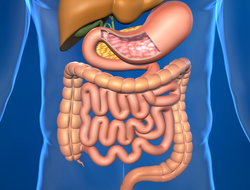Wheat: Do you need to eliminate or evaluate this grain
Published: June 24, 2022
Wheat, a staple of many diets for centuries, has become a grain of debate.
Wheat can cause serious health issues in people with wheat allergy or Celiac disease.
A small number of people may experience gastrointestinal distress after consuming wheat products.
However, a trendy diet suggests that consumption of wheat is responsible for the increasing rates of obesity and other chronic health issues.
The message here is lose the wheat from your diet, lose the weight and gain health.
Contrary to this condemnation of wheat as a health disruptor, wheat, as part of a balanced diet, provides significant health benefits.
This refers to the nutrients contained in whole grain wheat products.
In addition, the consumption of whole grain wheat products may help with weight loss and maintaining a healthy body weight.
Whether you want to lose some weight or alleviate your gastrointestinal (GI) distress, eliminating wheat products from your diet may appear to be the obvious solution.
However, when you eliminate wheat you also eliminate a whole bunch of nutrients essential for good health which you will need to replace from other sources.
Before eliminating wheat from your diet consider the following:
- Do you have a wheat allergy?
- Do you have Celiac disease?
- Do you experience gastrointestinal distress after consuming wheat products which may be caused by a sensitivity to gluten?
- What are the benefits of whole grain wheat consumption?
- How much wheat do you consume daily?
- Do you consume products which identity gluten as an ingredient?
- Do you enjoy eating wheat products?
What is a wheat allergy?
Wheat contains many different proteins of which 27 have been identified as allergens.
Gliadin causes the most severe allergic reaction.
Gluten is the most frequently observed allergen while albumins, globulins and wheat enzymes also produce allergic reactions.
Symptoms of wheat allergy include:
- the presence of IgE immunoglobulin in your blood
- eczema, hives, and/or swelling
- asthma, hay fever, and/or cough
- tiredness
- GI distress
- anaphylactic shock
- IBD (Irritable Bowel Disease)
Estimates of the prevalence of wheat allergy from self reports indicate that about 35% of the North American population has wheat allergy.
However, when tested for wheat allergy only...link to the full article to learn more.
References
2.
Miller-Jones, J. (2013). Wheat Gluten and Health: the Science Behind Gut Health and Food Tolerance. SNEB conference Portland 2013
3.
Beyer, P.L. (2004). Medical Nutrition Therapy for lower Gastrointestinal Tract Disorders. In Food, Nutrition and diet theraphy


